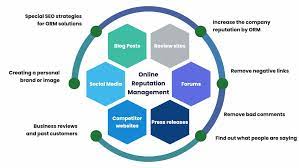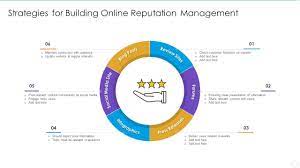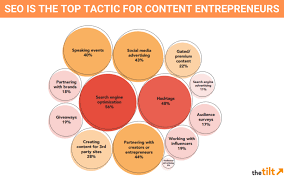SEO Content Creation: A Guide to Boost Your Online Presence
SEO Content Creation: A Guide to Boost Your Online Presence
In today’s digital age, creating high-quality content is essential for improving your website’s search engine ranking and attracting more organic traffic. Search Engine Optimization (SEO) content creation involves crafting content that not only engages your audience but also satisfies search engine algorithms.
Key Steps for Effective SEO Content Creation:
- Keyword Research: Start by conducting thorough keyword research to identify relevant terms and phrases that your target audience is searching for. Use tools like Google Keyword Planner or SEMrush to discover high-volume keywords with low competition.
- Content Planning: Develop a content strategy that aligns with your business goals and target audience preferences. Create a content calendar to ensure consistency in publishing valuable and relevant content.
- Optimise On-Page Elements: Incorporate target keywords naturally into your titles, headings, meta descriptions, and body content. Ensure that your content is well-structured with proper headings, subheadings, and bullet points for readability.
- Create Engaging Content: Focus on creating informative, engaging, and shareable content that provides value to your audience. Use multimedia elements like images, videos, infographics, and interactive features to enhance user experience.
- Mobile-Friendly Design: With the increasing use of mobile devices, ensure that your website and content are optimised for mobile users. Implement responsive design and fast loading times to improve user experience and SEO performance.
- Monitor Performance: Regularly track the performance of your SEO content using tools like Google Analytics. Analyse key metrics such as organic traffic, bounce rate, time on page, and conversion rates to identify areas for improvement.
The Benefits of SEO Content Creation:
Effective SEO content creation can offer several benefits for your online presence:
- Improved Search Engine Ranking: By optimising your content for relevant keywords, you can increase your visibility on search engine results pages (SERPs) and attract more organic traffic.
- Enhanced User Experience: High-quality content that is well-structured and informative can improve user engagement and encourage visitors to spend more time on your website.
- Increase Brand Authority: Consistently producing valuable content can establish your brand as an authority in your industry and build trust with your audience.
- Boost Conversions: Engaging SEO content can drive qualified leads through the sales funnel and improve conversion rates by providing valuable information to potential customers.
In conclusion, investing time and effort into SEO content creation can significantly impact your online visibility, user engagement, and overall business success. By following best practices and staying updated on SEO trends, you can create compelling content that resonates with both search engines and users alike.
17 Frequently Asked Questions About SEO Content Creation
- How do I start SEO content?
- How do you create effective SEO content?
- What are the 4 stages of SEO?
- Is SEO a content creation tool?
- How do I add content to SEO?
- How do you create good SEO content?
- What are the 3 types of SEO?
- What are the 4 types of SEO?
- How to use SEO in content creation?
- How does SEO help content?
- What is SEO and how it works?
- What is SEO content creation?
- What is SEO in content creation?
- What content is best for SEO?
- How does SEO impact your content creation process?
- Is SEO a content creator?
- What is SEO content writing examples?
How do I start SEO content?
To start SEO content creation, begin by conducting thorough keyword research to identify relevant terms and phrases that your target audience is searching for. Utilise tools like Google Keyword Planner or SEMrush to discover high-volume keywords with low competition. Develop a content strategy that aligns with your business goals and target audience preferences. Create a content calendar to ensure consistency in publishing valuable and relevant content. Incorporate target keywords naturally into your titles, headings, meta descriptions, and body content. Ensure that your content is well-structured with proper headings, subheadings, and bullet points for readability. By following these steps, you can lay a strong foundation for effective SEO content creation that boosts your online presence and attracts more organic traffic.
How do you create effective SEO content?
Creating effective SEO content involves a strategic approach that combines keyword research, high-quality writing, and on-page optimisation techniques. Start by conducting thorough keyword research to identify relevant terms and phrases that your target audience is searching for. Incorporate these keywords naturally into your content while ensuring it remains valuable and engaging for readers. Structure your content with proper headings, subheadings, and bullet points to improve readability and user experience. Additionally, focus on creating informative and shareable content that addresses the needs and interests of your audience. By following these best practices and staying updated on SEO trends, you can create compelling content that not only ranks well in search engines but also resonates with your readers.
What are the 4 stages of SEO?
In the realm of SEO, the process of optimising a website typically involves four key stages. The first stage is ‘Technical SEO’, which focuses on ensuring that the website is technically sound and easily accessible to search engines. The second stage is ‘On-Page SEO’, where content and HTML elements are optimised to improve search engine visibility. The third stage is ‘Off-Page SEO’, which involves building quality backlinks and enhancing the website’s authority and reputation. Finally, the fourth stage is ‘Local SEO’, which targets local search results by optimising business information for geographic relevance. By navigating through these four stages of SEO diligently, businesses can enhance their online presence and attract more organic traffic effectively.
Is SEO a content creation tool?
SEO is not a content creation tool in itself, but rather a set of strategies and techniques used to enhance the visibility and ranking of content on search engine results pages (SERPs). While SEO plays a crucial role in driving organic traffic to your content, it is more about optimising existing content to make it more search engine-friendly. Effective SEO involves keyword research, on-page optimisation, link building, and other tactics that help improve the visibility of your content online. Therefore, while SEO is not a content creation tool per se, it is an essential component in ensuring that your content reaches its target audience and achieves its intended goals.
How do I add content to SEO?
To add content to SEO effectively, it is essential to focus on creating high-quality, relevant, and engaging content that aligns with your target audience’s interests and search intent. Start by conducting keyword research to identify relevant terms and phrases that your audience is searching for. Incorporate these keywords naturally into your titles, headings, meta descriptions, and body content. Ensure that your content is well-structured with proper headings and subheadings for readability. Additionally, regularly update your content with fresh information to keep it relevant and valuable to both users and search engines. By following these best practices, you can enhance your website’s SEO performance and attract more organic traffic.
How do you create good SEO content?
Creating good SEO content involves a strategic approach that combines quality writing with search engine optimisation techniques. To create effective SEO content, start by conducting thorough keyword research to identify relevant terms and phrases that your target audience is searching for. Incorporate these keywords naturally into your titles, headings, meta descriptions, and body content. Focus on creating informative, engaging, and shareable content that provides real value to your audience. Structure your content with proper headings, subheadings, and bullet points for readability. Additionally, utilise multimedia elements like images and videos to enhance user experience. Regularly monitor the performance of your SEO content and make adjustments based on analytics data to continuously improve your content strategy for better search engine rankings and user engagement.
What are the 3 types of SEO?
When it comes to SEO, there are three main types that businesses should consider implementing to improve their online visibility and ranking. The first type is on-page SEO, which involves optimising individual web pages with relevant keywords, meta tags, and high-quality content to attract organic traffic. The second type is off-page SEO, which focuses on building backlinks from reputable websites to increase domain authority and credibility. Lastly, technical SEO involves enhancing the technical aspects of a website, such as site speed, mobile-friendliness, and structured data markup, to ensure optimal performance in search engine results. By incorporating these three types of SEO strategies effectively, businesses can enhance their online presence and reach a wider audience.
What are the 4 types of SEO?
When it comes to Search Engine Optimization (SEO), there are four main types that businesses can focus on to improve their online visibility and search engine rankings. These include on-page SEO, off-page SEO, technical SEO, and local SEO. On-page SEO involves optimizing individual web pages with relevant keywords, meta tags, and quality content. Off-page SEO focuses on building backlinks from reputable websites to increase domain authority. Technical SEO deals with website infrastructure and performance optimization for better crawling and indexing by search engines. Local SEO targets local search results by optimizing business listings and citations for location-based searches. By understanding and implementing these different types of SEO strategies effectively, businesses can enhance their online presence and attract more organic traffic.
How to use SEO in content creation?
To effectively use SEO in content creation, it is essential to start with thorough keyword research to identify relevant terms that your target audience is searching for. Incorporate these keywords naturally into your titles, headings, meta descriptions, and body content while ensuring the overall quality and relevance of the content. Structuring your content with proper headings, subheadings, and bullet points can improve readability and user experience. Additionally, creating engaging and informative content that provides value to your audience can help boost SEO performance. Regularly monitoring the performance of your SEO content using analytics tools can provide insights for ongoing optimisation and improvement. By following these key steps, you can enhance your online visibility and attract more organic traffic through effective SEO content creation strategies.
How does SEO help content?
SEO plays a crucial role in enhancing the visibility and performance of content online. By implementing SEO strategies such as keyword research, on-page optimization, and link building, content creators can improve their chances of ranking higher in search engine results pages (SERPs). This increased visibility not only attracts more organic traffic to the content but also helps it reach a wider audience. SEO ensures that content is easily discoverable by search engines and relevant to users’ search queries, ultimately driving more engagement, leads, and conversions. In essence, SEO acts as a catalyst for content success by making it more accessible, valuable, and impactful in the digital landscape.
What is SEO and how it works?
Search Engine Optimization (SEO) is a digital marketing strategy aimed at improving a website’s visibility and ranking on search engine results pages (SERPs). SEO works by optimising various elements of a website, such as content, keywords, meta tags, and backlinks, to make it more relevant and authoritative in the eyes of search engines like Google. By following SEO best practices and creating high-quality content that aligns with user search intent, websites can attract organic traffic and increase their chances of appearing higher in search results. SEO involves both on-page and off-page techniques to enhance a website’s credibility and relevance, ultimately driving more targeted traffic and potential customers to the site.
What is SEO content creation?
SEO content creation refers to the process of developing and optimizing online content to improve its visibility and ranking on search engine results pages. It involves strategically incorporating relevant keywords, creating high-quality and engaging material, and structuring the content in a way that appeals to both search engines and human readers. The goal of SEO content creation is to attract organic traffic, enhance user experience, establish authority in a particular niche, and ultimately drive conversions. By following best practices in SEO content creation, businesses can increase their online presence, reach a wider audience, and achieve their digital marketing objectives effectively.
What is SEO in content creation?
SEO in content creation refers to the practice of optimising written, visual, or multimedia content to improve its search engine visibility and attract organic traffic. By strategically incorporating relevant keywords, structuring content for readability, and following search engine guidelines, SEO content creation aims to enhance a website’s ranking on search engine results pages (SERPs). The goal is to create valuable, engaging content that not only resonates with the target audience but also aligns with search engine algorithms to drive more qualified traffic to the website. Effective SEO in content creation involves a combination of keyword research, on-page optimisation, user-focused writing, and regular performance monitoring to ensure that the content meets both user intent and search engine requirements.
What content is best for SEO?
When considering what content is best for SEO, it is essential to focus on creating high-quality, relevant, and engaging content that meets the needs of your target audience. Content that is well-researched, informative, and valuable to users tends to perform well in search engine rankings. Incorporating relevant keywords naturally into your content, optimising on-page elements such as titles and meta descriptions, and ensuring a user-friendly experience are key factors in creating SEO-friendly content. Additionally, using multimedia elements like images and videos can enhance the visual appeal and engagement of your content. Ultimately, the best content for SEO is one that addresses the search intent of users, provides solutions to their queries, and encourages them to engage with your website.
How does SEO impact your content creation process?
Incorporating SEO into your content creation process can have a profound impact on the visibility and effectiveness of your content. By conducting keyword research and optimising your content for relevant terms, you can attract more organic traffic to your website. SEO helps you understand the search intent of your target audience, allowing you to create content that addresses their needs and interests. Optimising on-page elements such as titles, headings, and meta descriptions can improve your search engine ranking and make it easier for users to find and engage with your content. Ultimately, integrating SEO into your content creation strategy ensures that your content is not only valuable and engaging but also strategically positioned to reach a wider audience online.
Is SEO a content creator?
The relationship between SEO and content creation is often misunderstood. SEO itself is not a content creator; rather, it is a set of practices and strategies aimed at improving a website’s visibility and ranking in search engine results. Content creation, on the other hand, involves producing high-quality, relevant, and engaging content for users. While SEO informs content creation by guiding the use of keywords, meta tags, and other optimisation techniques, it is ultimately the responsibility of the content creator to craft valuable content that resonates with the target audience and satisfies search engine algorithms. By integrating SEO best practices into content creation efforts, businesses can enhance their online presence and attract more organic traffic.
What is SEO content writing examples?
SEO content writing examples encompass a wide range of content types that are strategically crafted to improve search engine visibility and drive organic traffic to a website. Some common examples of SEO content writing include blog posts, product descriptions, landing pages, articles, case studies, infographics, and social media posts. Each of these content formats is optimised with relevant keywords, structured for readability and user engagement, and designed to provide valuable information to the target audience while satisfying search engine algorithms. By incorporating SEO best practices into these content types, businesses can enhance their online presence and attract quality traffic that leads to increased visibility and conversions.












